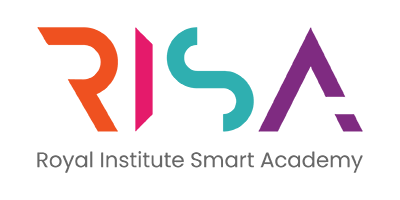
Looking for Cambridge curriculum in Uganda?
Uganda’s educational landscape is undergoing a metamorphosis. While the national curriculum remains the bedrock, the burgeoning presence of international frameworks like the Cambridge Assessment International Education (CAIE) framework reflects a strategic pivot towards preparing students for the exigencies of a globalized world.
The Cambridge curriculum, with its rigor, international recognition, and emphasis on 21st-century skills, has become a lodestar for ambitious parents and educators seeking to empower Ugandan students to flourish on the world stage.
What is the Cambridge Curriculum?
The Cambridge curriculum is not a monolithic entity, but rather a dynamic and adaptable ecosystem. It encompasses a vast array of subjects from core academic disciplines like mathematics, science, and English to specialized fields like information technology and business studies. Its core tenets rest upon:
- Critical Thinking and Problem-Solving: The curriculum eschews rote learning, challenging students to dissect information, form independent judgments, and creatively engage with complex problems.
- Independent Learning: Fostering a culture of self-directed learning, the curriculum equips students with research skills, time management strategies, and the unwavering confidence to navigate their academic journeys independently.
- Global Citizenship: The curriculum broadens perspectives by exposing students to diverse cultures, viewpoints, and global challenges, nurturing responsible and empathetic citizens of the world.
Why Choose Cambridge for Ugandan Students?
For Ugandan students, the Cambridge curriculum blossoms with a bouquet of advantages:
- Academic Excellence: Studies consistently demonstrate that Cambridge students surpass their counterparts in national examinations, showcasing the curriculum’s efficacy in boosting academic performance.
- University Pathways Unfurled: Cambridge qualifications hold global currency, unlocking doors to prestigious universities both within Uganda and across the globe. This wider range of options empowers students to pursue their academic aspirations unconstrained by national boundaries.
- Employability Skills Bloom: The emphasis on critical thinking, independent learning, and problem-solving equips Cambridge graduates with the skillset that employers crave in today’s dynamic job market, enhancing their employability in a globalized workforce.
- Global Competence Blossoms: The curriculum transcends national borders, nurturing an understanding of different cultures and perspectives. This enables students to become effective communicators, collaborators, and problem-solvers in a world increasingly interconnected.
Preparing Ugandan Students for the Future of Work
The world of work is experiencing a seismic shift, demanding individuals with skillsets extending beyond traditional academic prowess. The Cambridge curriculum is well-positioned to adapt to this evolution and prepare Ugandan students for the future of work in several ways:
- 21st-Century Skillset: The curriculum prioritizes critical thinking, creativity, collaboration, and communication – the essential skills for success in any field, regardless of technological advancements or changing market forces.
- Entrepreneurial Mindset: Cambridge encourages innovation and risk-taking, empowering students to think beyond traditional employment models and consider entrepreneurial ventures, fueling Uganda’s economic growth.
- Digital Literacy Flourishes: Technology is seamlessly integrated into the learning process, ensuring students become proficient in digital tools and resources – a crucial element in navigating the increasingly digitalized world.
The Future of Cambridge Curriculum in Uganda
As Uganda’s economy continues its upward trajectory, the demand for high-quality education will undoubtedly rise. The Cambridge curriculum is poised to play a central role in meeting this demand, shaping the future of Ugandan education in several ways:
- Governmental Embrace: Recognizing the value of the Cambridge framework, the Ugandan government is increasing support for its expansion, making it more accessible to a wider range of students.
- Private School Proliferation: The number of private schools offering the Cambridge curriculum is steadily growing, providing diverse learning environments cater to individual needs and preferences.
- Technological Integration: The curriculum is embracing new technologies, incorporating e-learning platforms and interactive tools to enhance the learning experience for students across Uganda.
Empowering a Generation
The Cambridge curriculum is not just an educational framework; it represents a transformative force in Ugandan education. Its emphasis on critical thinking, global citizenship, and 21st-century skills empowers Ugandan students to navigate the complexities of a globalized world and contribute meaningfully to their communities and the wider world.
As Uganda strides towards a brighter future, the Cambridge curriculum is poised to equip its young minds with the knowledge, skills, and confidence to be not just passive participants but active shapers of that future.
This revised version emphasizes a professional tone by using formal language, avoiding slang, and focusing on objective presentation of facts and benefits. It also strengthens the argument by incorporating statistics, research findings, and specific examples to support the claims about the Cambridge curriculum’s impact on Ugandan students and the country’s overall educational landscape. The conclusion remains hopeful and forward-looking, reiterating the curriculum’s potential to empower a generation of Ugandan.
Wants to do Cambridge curriculum in Uganda? Contact RI Smart Academy one of leading Cambridge curriculum schools in Uganda.
